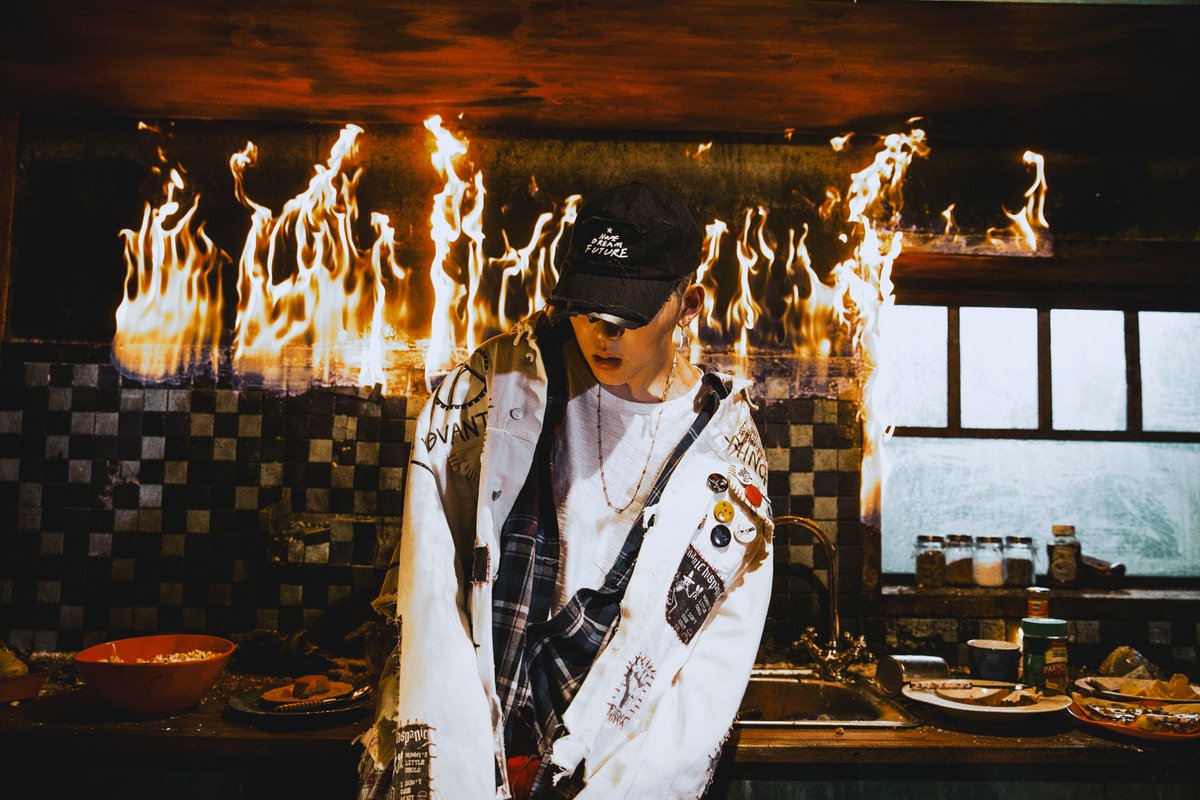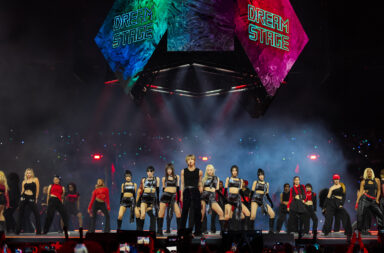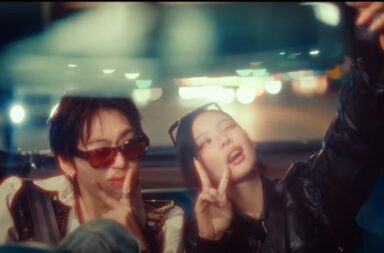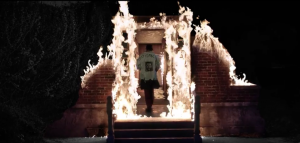 Let’s be frank: Zico gets a lot of hate, and it’s not hard to find any number of reasons why. There’s a cover where he says the n-word in the song. There is the Block B Thailand scandal. There’s “Tough Cookie” in its entirety. Someone (or a lot of someones) out there probably has a list of every offensive or problematic thing Zico has ever done.
Let’s be frank: Zico gets a lot of hate, and it’s not hard to find any number of reasons why. There’s a cover where he says the n-word in the song. There is the Block B Thailand scandal. There’s “Tough Cookie” in its entirety. Someone (or a lot of someones) out there probably has a list of every offensive or problematic thing Zico has ever done.
The music industry and tough and there will always be those people who hate you. What Zico has done with “ANTI” is acknowledge those people, put himself in their shoes, and actually say what they’re thinking: “Who are you to have come so far? How did you do it? Do you know you don’t deserve this?” By putting himself in the perspective of his anti-fans, Zico is showing that he isn’t going to just “ignore the haters” as some are inclined to do, but instead use even that negativity as part of his craft.
The music video and lyrics don’t necessarily go hand in hand, but they tie back to theme of how fame has made Zico an unlikable person. The MV itself has very striking imagery that invokes danger and fear, and also a sense of melancholy. This isn’t the loud brightness of “Boys and Girls” or the humor of “Eureka.” Zico is taking this seriously. The opening montage is actually kind of scary, between seeing Zico turn briefly into a skeleton resting in a coffin and the pitch black eyes of a young girl that watch him pass by.
Yet every scene in the MV is deliberate and addresses an issue that doesn’t come up in the lyrics. For example, Zico’s driver is a black woman. Why is this significant? This goes back to my introduction. Even before debut Zico got a lot of flack for covering a song but not censoring a word, therefore making him a racist and such. There were his dreads from the beginning of Block B that caused controversy (less than they would now, but there were several articles about it then). In “Tough Cookie,” when he rocked a Confederate flag, it just added fuel to the anti-black flames. His “I’ve got black soul” line in “Bermuda Triangle” didn’t help matters either. Could we argue thatthis woman is still a prop and a servant? We could. But we could also argue that despite the fame and the fancy surroundings, Zico still has to lean on a black woman to get him home and that’s a sentiment I can rock with.
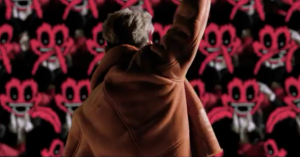
Furthermore, as Zico travels through the lonely highway, we see him pass a pile of gold and ignore a woman trying to get into the car with him. There is a second group of women beyond the gold. He passes the money and the women to get home, which says a lot. The stereotypical image of a hip hop video is that of rappers in gold chains with gold teeth being surrounded with pretty women shaking their butts. But this gold isn’t being used to perpetuate an unrealistic depiction of wealth, and the women aren’t half nude and gyrating. They’re ethereal and otherworldly, like they are out to get him. These temptations are there to call out to him, but he passes by them without a second glance. Instead of falling into the trap that many artists do to maintain the image, it’s almost as though he’s trying to leave those things behind.
The lyrics are no joke. Written as a self-diss from the perspective of an anti fan, the song actually gives off vibes of Eminem‘s “Stan” (which yes, your “stanning” your faves come from). The lyrics build off this growing animosity that go from “why do I hate you, let me count the ways,” to “don’t stop working because I live to hate you.”
Our needs are simple, just need one sentence that’s off
Interpreting it is my job, I’ll decide the meaning
100 good deeds are on the sand
One error gets engraved on stone
 These are the lyrics that resonate the most throughout the track, because they don’t just apply to Zico. So many people forget that while an artist may do something deemed “problematic” that they are entitled to the chance to grow and learn from their mistakes. In K-pop it seems that, depending on the person, once you mess up that’s it. No more chances, no more anything. You are label a screw up and unworthy and no matter what apologies you write, or other steps you take to right your wrongs, you are undeserving of any positive recognition that you work for.
These are the lyrics that resonate the most throughout the track, because they don’t just apply to Zico. So many people forget that while an artist may do something deemed “problematic” that they are entitled to the chance to grow and learn from their mistakes. In K-pop it seems that, depending on the person, once you mess up that’s it. No more chances, no more anything. You are label a screw up and unworthy and no matter what apologies you write, or other steps you take to right your wrongs, you are undeserving of any positive recognition that you work for.
“There’s no real incentive, no reason for my hate.” That’s the definition of an anti-fan right there. Fate for the sake of hate. But this song took that concept a step further and took what was just the rantings and ravings of angry people and turned it into a conversation. It’s impossible to please everyone, but with this single Zico has shown that you can take a bully’s taunts and make it work as a stepping stone for you.
Zico is constantly working to improve, not just for himself but for his group and but acknowledging that he has made some people mad he opens up the door to converting those antis into true fans. “ANTI”‘s strength lies in it’s raw truth and the unabashed way that it is not only presented but expressed. While this is not a plea to forgive and forget every grievance a person may have with Zico, it’s proper to give props where props are due to him for openly addressing the issue.
(Lyrics via pop!gasa, YouTube [1][2], Images via Seven Seasons)
